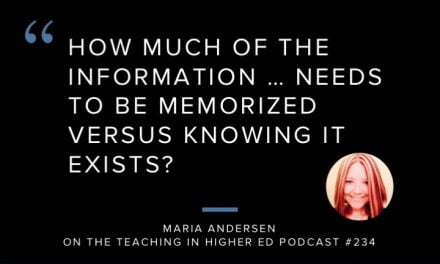My friend Mike Lively (from Northern Kentucky University) just gave a presentation in Washington DC about the Globalization of Higher Education. Mike is the Director of Instructional Design at Northern Kentucky University. I’m visiting NKU the first week of March and for those of you in the Cincinatti area, I’ll be giving two presentations to the math department at NKU on March 4 and 5 (more information to come).
After the presentation, Mike recorded the text of the presentation and produced it (in five parts) to YouTube. The presentation is called “Exiting the Educational Silo, Entering the Global Freeway.” It will take you 30-40 minutes to watch all five parts – mostly you just need to listen (but pay attention when he demos some of their latest innovations!) Part 1 is not very exciting (sorry Mike), but it is necessary to set up the latter parts of the presentation.
Mike advocates that educational institutions aim to position themselves to gain the center-stage of the global arena. The goal is not necessarily to maintain that center-stage position, but have a leadership structure and organizational model that allows enough innovation to find your school periodically in that center-stage position. Although any institution would love to “hog” center stage, it is probably not reasonable to expect to be there for long.

Mike expressed concern that the existing model for technological innovation at most schools is the creation of “uber-instructors” – instructors that have content knowledge, are pedagogical starts, and become extreme technofiles. He argues that we don’t have to create uber-instructors as long as instructors have a solid design team supporting their technological desires for improving pedagogy. In fact, Mike goes as far as claiming that some of the best pedagogical innovations involving technologies have been from instructors that DON’T have a good understanding of technology.

I feel consistently hampered by our chosen LMS (which shall remain nameless). By the time it integrates the latest Web 2.0 tools, I’ve moved on to a version on the Internet with more features and greater flexibility. While the synchronous communication tools in our LMS crash and burn (especially the whiteboard function), the latest Internet-based platforms (like WizIQ) are extremely stable and have been delightful to use.

So I was delighted to see Mike take a shot at the present day LMS leaders with this slide”Why Present Day Learning Management Systems will fail.” His take? They have simply become to large to innovate. Any change to the system causes so many errors and fractured links down the structure of the pyramid that rapid change is simply not possible. Mike predicts small companies with the ability to innovate rapidly will be able to surpass large companies in the global arena. Parallel this to the higher education arena, and we could conclude that small colleges with quality online design and flexible, innovative, capabilities, will be able to outpace and out-innovate large behemoth universities with standardized systems.
Community colleges are uniquely situated to rapidly change to meet the needs of their surrounding community. If they can translate their success in the rapidly adapt to community needs to being successful in innovation of technology and pedagogy, then I think instructional design departments at CC’s could be the “small organizations” that often capture the center-stage of the global arena.
Schools like University of Pheonix may be the big players in online education now, but I don’t see any evidence that their scaled-up ODE model includes the ability to innovate – and so, their online success might be just a blip on the timeline of online education. Colleges with some vision and courage to allow innovation could launch themselves to the front of the online pack with a few creative faculty, design staff, student know-how, and little financial cost.
Every college that is participating in ODE planning should watch Mike’s presentation prior to their next meeting. Even if you don’t agree with everything that Mike outlines in the presentation, it could lead to some important and necessary conversations on your campus.





